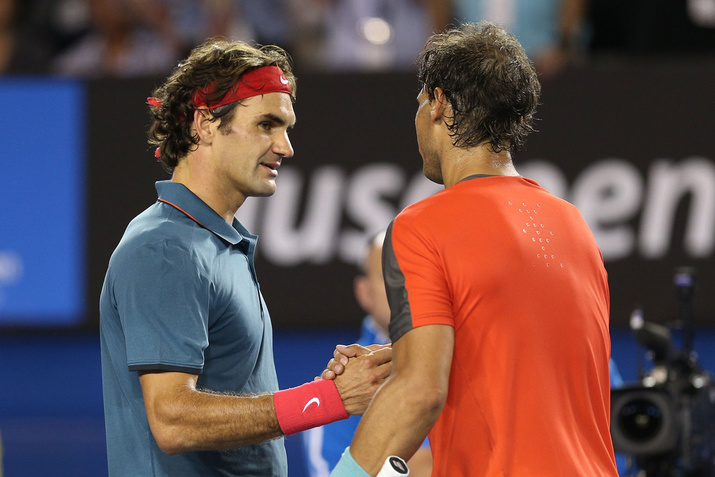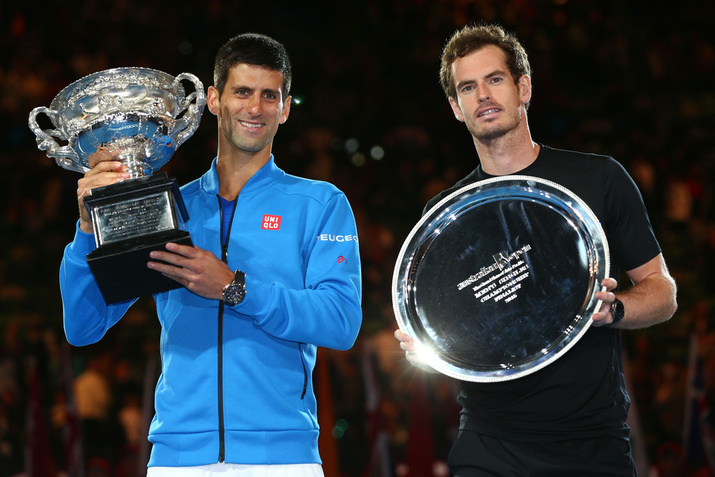Don't miss any stories → Follow Tennis View
FollowDjokovic, Murray, and the Ingredients of a Rivalry
There are many elements that make sports so captivating, and one of the most compelling among them is the rivalries that they generate. Be it Tom Brady versus Peyton Manning, the New York Yankees versus the Boston Red Sox, or Roger Federer versus Rafael Nadal, there is just something about these contests that carries an added bit of excitement and weight. They simultaneously instill a deep devotion along with inherent disdain, and in so doing, make their sport all the richer for it.

Tennis has had no shortage of rivalries over the years. Federer and Nadal, Martina Navratilova and Chris Evert, and John McEnroe and Björn Borg are a few of the matchups that have enthralled audiences over the last few decades. But what exactly has made these and other historic battles so entertaining?
Truth is, there is no set formula for creating the perfect rivalry, but most analysts agree that there are certain key factors frequently present. In most cases, the rivalry is between two established titans of the game. Since both combatants are at the pinnacle of their sport, it is expected they will naturally bring out the best in each other, for they recognize only their A-game can bring them victory. Contrasting styles may also add to the intrigue, especially since it gives greater importance to the playing surface in any given encounter. Then there is one other, more controversial ingredient that can put a rivalry right over the top: drama.
Drama can quickly create more interest in a match or rivalry, which is a fact of which the media is fully aware. That was evident in the latter stages of the men’s event at the Australian Open, starting with the semifinal match between Andy Murray and Tomas Berdych. Given the magnitude of the occasion, Murray and Berdych were already on high alert, but there were a few ugly incidents as the players and their respective camps exchanged words. After all was said and done, both Murray and Berdych attempted to downplay what had transpired, but Murray took it one step further, accusing the media of ratcheting up the tension by building up the fact that Murray’s old coach, Dani Vallverdu, was now coaching Berdych.
The drama would not stop there for Murray, however. Following his championship defeat to Novak Djokovic, Murray commented on the Serb’s physical woes midway through the match and expressed disappointment in the way he had allowed it to affect his own level of play. Upon the media’s relation of Murray’s comments to Djokovic, the current No. 1 seemed put off by the Scot’s words and later publicly said he would like to talk to Murray to smooth over any rough edges. Murray has since come out and insisted he has no issue with Djokovic, but he once again looked to the media as trying to stir up something out of nothing.

To some extent, Murray is correct. More than once, the media, or even fans for that matter, have taken snippets of a player’s interview out of context to create or feed a frenzy to drum up the drama. That is something that does not need to be done, particularly since, as men’s tennis has proven for more than 10 years now, you can create compelling rivalries within the realm of a predominantly friendly atmosphere.
On the other hand, though, there is no denying that there is value in adding drama. A case-in-point would be the faux-rivalry between Serena Williams and Maria Sharapova. In spite of the fact that Williams has dominated the Russian for over a decade, their frosty, off-court relationship continues to play a major role in making any of their matches “must-see” tennis. Similarly, there has always been more of an edge to the Djokovic versus Nadal rivalry, which has played a part in bringing some analysts around in suggesting that their rivalry is arguably more enticing than that of Nadal’s with Federer. The media recognizes these trends, and so when a natural angle for upping the drama presents itself – such as Vallverdu now coaching Berdych – they are well within their rights to put it in the spotlight.
Right or wrong, love it or hate it, drama brings a special quality to a rivalry. It invariably makes it feel more personal, and it invokes stronger emotions than merely watching two combatants who are legends of the game. That said, it is essential that the drama be organic and not manufactured. After all, there are plenty of other elements to appreciate in a great rivalry, and no player deserves to unjustifiably be thrown under the bus for the sake of selling some extra tickets or drawing a few extra sets of eyes to the television.










